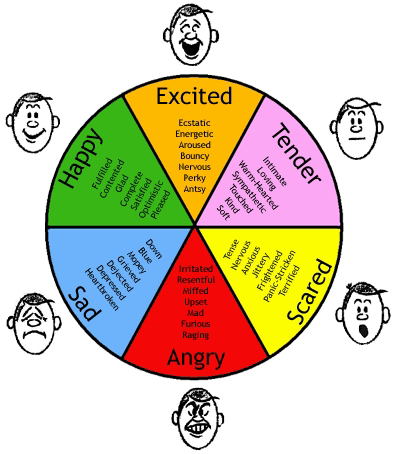Psychological Changes in the Human Body: Understanding the Mind-Body Connection
The intricate relationship between the mind and the body has been a subject of fascination for centuries. Modern science has made significant strides in understanding how psychological states can induce physiological changes and vice versa. This dynamic interplay profoundly impacts our overall health and well-being. Here, we delve into the various ways psychological changes manifest in the human body, exploring stress, emotions, mental health disorders, and the powerful connection between mind and body.
The Stress Response
When faced with a perceived threat, the body activates the "fight or flight" response, a survival mechanism designed to prepare us for immediate action. This response involves the release of stress hormones, such as adrenaline and cortisol, from the adrenal glands. These hormones increase heart rate, elevate blood pressure, and boost energy supplies.
Chronic Stress
While acute stress can be beneficial in dangerous situations, chronic stress can have detrimental effects on the body. Prolonged exposure to stress hormones can lead to various health issues, including:
- Cardiovascular Problems:Chronic stress is linked to hypertension, heart disease, and stroke.
- Immune Suppression:Persistent stress can weaken the immune system, making the body more susceptible to infections and illnesses.
- Digestive Issues: Stress can cause or exacerbate conditions like irritable bowel syndrome (IBS) and acid reflux.
- Mental Health Disorders:Long-term stress is a significant risk factor for anxiety, depression, and other mental health conditions.
The Role of Emotions
Emotions are complex psychological states that can trigger a wide range of physical reactions. For instance:
- Happiness: Positive emotions like joy and contentment can lower stress levels, boost the immune system, and promote overall health.
- Sadness:Prolonged sadness or grief can lead to fatigue, sleep disturbances, and weakened immunity.
- Fear:Fear can cause the body to tense up, increase heart rate, and induce sweating.
Psychosomatic Symptoms
Psychosomatic symptoms are physical manifestations of psychological distress. These symptoms are real and can significantly impact an individual's quality of life. Common psychosomatic symptoms include:
- Headaches and Migraines:Often triggered by stress, anxiety, or depression.
- Muscle Pain: Chronic stress can cause muscle tension and pain, particularly in the neck, shoulders, and back.
- Gastrointestinal Problems: Stress and anxiety can lead to stomachaches, nausea, and other digestive issues.
Depression
Depression is a common mental health disorder that can have profound physical effects. Individuals with depression often experience:
- Sleep Disturbances:Insomnia or hypersomnia are common in people with depression.
- Changes in Appetite: Depression can lead to significant weight loss or gain due to changes in appetite.
- Fatigue:Persistent tiredness and lack of energy are hallmark symptoms of depression.
Anxiety Disorders
Anxiety disorders, including generalized anxiety disorder (GAD), panic disorder, and social anxiety disorder, can cause a range of physical symptoms such as:
- lIncreased Heart Rate:Anxiety often leads to palpitations or a racing heart.
- Breathing Difficulties:Hyperventilation and shortness of breath are common during anxiety attacks.
- Sweating: Excessive sweating, particularly in stressful situations, is a typical symptom.
Post-Traumatic Stress Disorder (PTSD)
PTSD is a condition that develops after experiencing or witnessing a traumatic event. Physical symptoms of PTSD can include:
- Sleep Problems: Nightmares and insomnia are prevalent among those with PTSD.
- Chronic Pain: Many individuals with PTSD suffer from chronic pain conditions.
- Immune System Dysfunction:PTSD can weaken the immune system, leading to increased susceptibility to illnesses.
Meditation and Mindfulness
Meditation and mindfulness practices have been shown to reduce stress, lower blood pressure, and improve overall mental health. These practices help calm the mind, reduce the production of stress hormones, and promote relaxation.
Exercise
Regular physical activity is beneficial for both mental and physical health. Exercise releases endorphins, which are natural mood lifters. It also helps reduce anxiety, improve sleep, and boost self-esteem.
Yoga
Yoga combines physical postures, breathing exercises, and meditation, making it a powerful tool for reducing stress and promoting overall well-being. Studies have shown that yoga can decrease cortisol levels and improve mental health.
Cognitive Behavioral Therapy (CBT)
CBT is a type of psychotherapy that helps individuals identify and change negative thought patterns. It is effective in treating a range of mental health disorders, including depression and anxiety. By addressing psychological issues, CBT can also alleviate associated physical symptoms.
The placebo effect is a fascinating demonstration of the mind-body connection. When individuals believe they are receiving treatment, even if it is an inert substance, they often experience real physiological changes. This phenomenon highlights the power of the mind in influencing physical health.
6. Neuroplasticity and Mental Health
Neuroplasticity refers to the brain's ability to reorganize itself by forming new neural connections. This ability allows the brain to adapt to new experiences, learn new information, and recover from injuries. Mental health interventions, such as therapy and mindfulness practices, can leverage neuroplasticity to create positive changes in the brain, improving both psychological and physical health.
Conclusion
The relationship between psychological changes and the human body is profound and complex. Understanding this connection is crucial for promoting overall health and well-being. By recognizing how stress, emotions, and mental health disorders affect the body, we can better manage these conditions and improve our quality of life. Mind-body therapies, such as meditation, exercise, and cognitive behavioral therapy, offer effective strategies for maintaining mental and physical health. Embracing the mind-body connection empowers us to take a holistic approach to health, ensuring that both our minds and bodies thrive.






